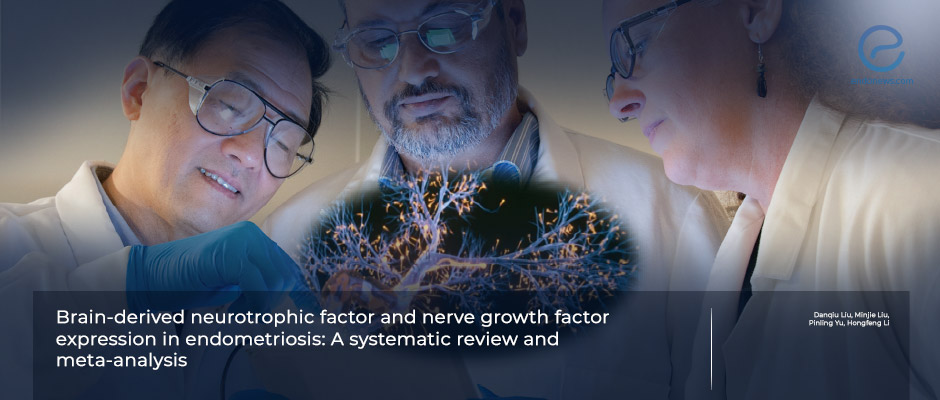Neurotrophins proposed as possible biomarkers for endometriosis
Dec 19, 2023
Two important neurotrophins are reviewed in search of a non-invasive and reliable diagnostic endometriosis marker
Key Points
Highlight
- Two neurotrophins, brain-derived neurotrophic factor (BDNF) and nerve growth factor (NGF), are shown to have increased levels in the serum and endometrial tissue in endometriosis.
Importance
- As the most common symptom of endometriosis, the pain is regulated by neurotrophins and it is important to recognize their role in the pathogenesis of the disease.
- BDNF and NGF may serve as non-invasive biomarkers in the diagnosis of endometriosis.
What’s done here
- Researchers from China conducted a meta-analysis and systematic review of the difference between BDNF and NGF levels in patients with endometriosis and controls.
- A thorough literature search was performed and the results were evaluated.
- A total of 10 studies were included in the analysis.
Key results
- Patients with endometriosis had a higher level of BDNF in their serum and endometrial tissue compared to the controls.
- NGF levels were shown to be increased in the endometrial tissue of the endometriosis patients compared to the controls.
- The leave-out analysis for NGF levels did not have stable results.
Limitations
- The small number of studies and limited sample size of several cohorts
- Variations in the study cohorts, location of endometriosis lesions, sample types, and measurement criteria
- Inability to derive pooled sensitivity and specificity values for BDNF as a diagnostic marker
Lay Summary
As the search for a good-quality biomarker in endometriosis continues, certain growth factors have been investigated for their roles in the pathophysiology of the disease. Neurotrophins, as regulators of neuronal development and survival, are also known to take part in peripheral pain pathways as well as central sensitization. Taking into account that the brain-derived neurotrophic factor (BDNF) and nerve growth factor (NGF) have been shown to be affected by hormone levels, Liu et al. from Zhejiang, China conducted a meta-analysis and systematic review aiming to evaluate the difference in expression levels of these two neurotrophins in patients with endometriosis compared to the controls. The article was published in the September 2023 issue of the Taiwanese Journal of Obstetrics & Gynecology.
After a comprehensive literature search, a total of 10 articles that compared BDNF and/or NGF levels in either serum or endometrial tissue of more than 10 patients (sample size range 20-77 patients) that underwent laparoscopic surgery with similar symptoms were included in the review.
The meta-analysis revealed that patients with endometriosis had a higher level of BDNF in their serum and endometrial tissue compared to the controls. Among the three studies that assessed the NGF levels, they were shown to be increased in the endometrial tissue of the endometriosis patients compared to the controls, however, the levels were not stable on the leave-out analysis.
The authors discuss that higher levels of these neurotrophins were found associated with endometriosis symptoms like pelvic pain and dysmenorrhea. Ectopic endometrial tissues have been shown to increase the BDNF levels, therefore it is thought that it can serve as a non-invasive diagnostic marker for endometriosis. Even though the data about NGF is scarce, further research might prove it useful as well.
To conclude, the authors express the fact that further research with bigger sample sizes is needed to establish these growth factors as biomarkers that can aid in the diagnosis of endometriosis.
Research Source: https://pubmed.ncbi.nlm.nih.gov/37678988/
endometriosis biomarker neurotrophins brain-derived neurotrophic factor nerve growth factor

